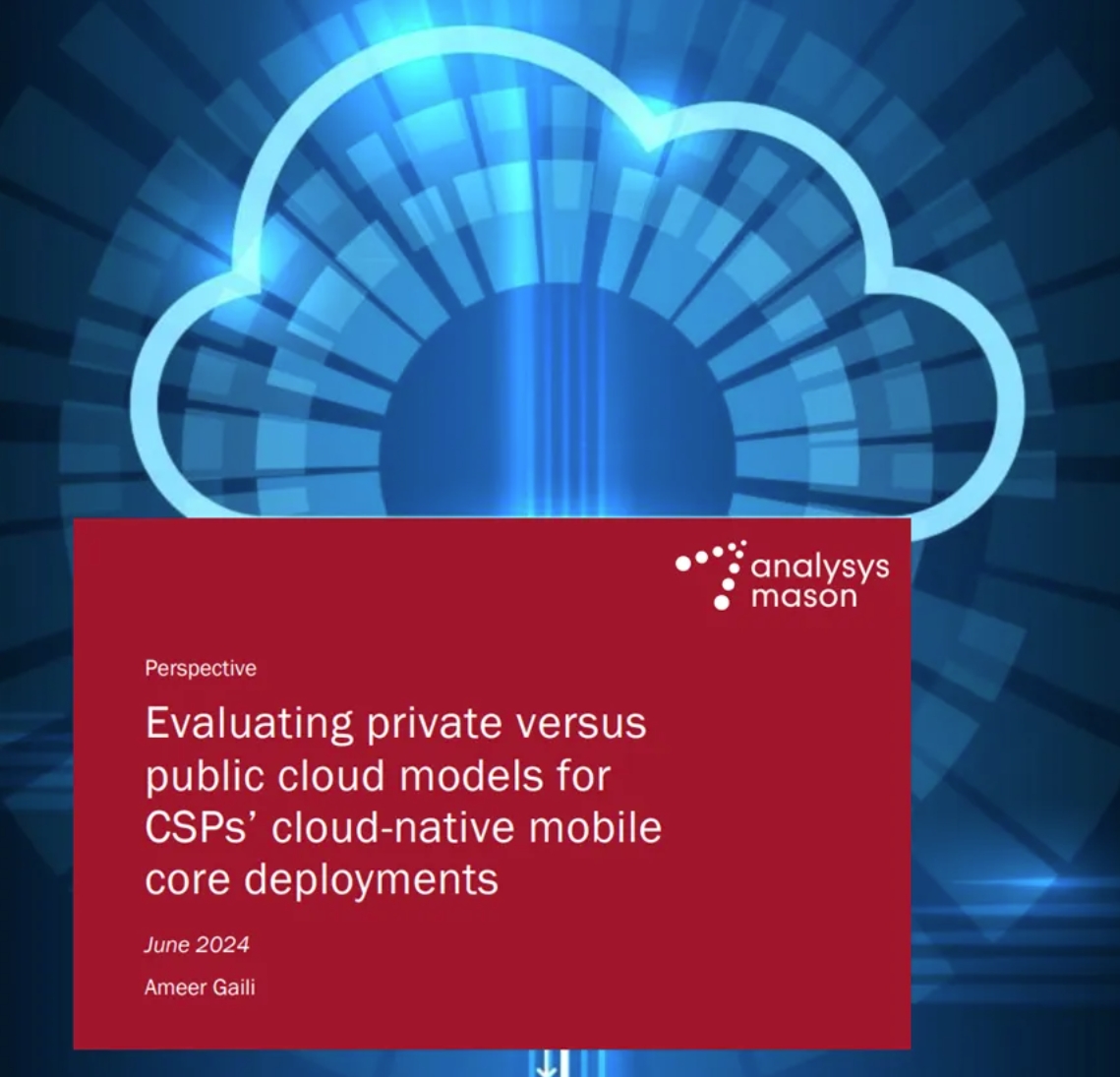Recently, Analysys Mason, a renowned consulting firm, released a white paper comparing and evaluating the deployment of the core network on the Telco Cloud and public cloud. The report's findings are based on a global survey of 60 communication service providers (CSPs), of which 70% were tier-1 CSPs. Research shows that deploying Telco Cloud is more advantageous in terms of technology and business benefits for CSPs. In the medium and long term, Telco Cloud is expected to provide a better total cost of ownership (TCO).

According to the white paper, Telco Cloud remains the preferred solution for CSPs when it comes to developing their mobile core networks. Compared with the public cloud, Telco Cloud is more secure, offers higher network performance, and ensures data sovereignty. While CSPs appreciate the on-demand scalability of the public cloud, many who are trialling public clouds have failed to achieve desired network performance.
Security: The adoption of cloud-native technologies, such as containerization and microservices, has extended the risk exposure of telecom networks, leading to a higher number of potential vulnerabilities. Therefore, security is a critical concern. Surveyed CSPs believe that Telco Cloud can offer superior security for core networks due to its dedicated resources and carrier-grade enhancements. Unlike the public cloud, where infrastructure is shared among multiple tenants, Telco Cloud provides CSPs with exclusive control over the environment, significantly reducing the risk of unauthorized access and data breaches. The fact that major security breaches have occurred at multiple public cloud providers has heightened concerns among the CSPs.
Network performance: CSPs are concerned about the performance of their core networks deployed on the public cloud, often having doubts that it may increase latency and fail to meet carrier-grade requirements such as high reliability, consistency, and predictability. Surveyed CSPs who have already trialled public cloud-based mobile core networks said that they were unable to achieve the same level of guaranteed performance and reliability as they experienced when running their core networks on the Telco Cloud. Furthermore, public cloud service-level agreement (SLA) guarantees are not yet on par with telco cloud's 'five nines'(99.999%) reliability guarantees (5.26 minutes of downtime per year).
Data sovereignty: As legislation surrounding user privacy and data security continues to evolve, data sovereignty has become an increasingly acute concern for CSPs. Telco Cloud addresses this issue by featuring dedicated infrastructure that enables data to be stored and managed within designated jurisdictions, allowing organizations to easily comply with local data protection laws and mitigate the legal risks associated with cross-border data transfers. In contrast, public cloud providers may not have data centers in all regions, making it challenging for them to comply with relevant laws in certain countries. In addition, the management and control of encryption keys on the public cloud pose a further sovereignty issue for CSPs.
The white paper also compares the TCO of different deployment models: telco cloud, centralized public cloud, and hybrid public cloud. According to the white paper, the TCO of the public cloud solution is expected to exceed that of the Telco Cloud in the medium to long term, primarily due to network and data transmission costs.
Centralized public cloud model: In this model, CSPs host all core network services in the data center of the public cloud. As a result, CSPs need to pay not only the compute and storage resource rental fees, cluster management service fees, but also the private line fees for connecting their network to the public cloud data center and the traffic fees (for data transferred in and out of the public cloud). These private lines demand stable and high-speed connections, leading to high initial expenditures and increasing costs as services and bandwidth capacity expand.
Hybrid public cloud model: In this model, public cloud vendors install hardware in the CSPs' data centers in an on-premises approach. This model saves on private line and traffic fees, but still charges for renting compute, storage, and network hardware. However, this model sacrifices the scalability and on-demand expansion benefits typically associated with the public cloud. Moreover, the hardware specifications and customization capabilities of the on-premises solution are limited, leading to over-configured hardware resources and higher lease costs.
According to the survey and analysis, the white paper points out that the long-term TCO of the public cloud solution is still much higher than that of the Telco Cloud solution, regardless of the deployment model.
Furthermore, the white paper highlights the potential of the Telco Cloud to deliver a better TCO for CSPs. It is worth also worth noting that operation and maintenance (O&M) plays an important role in achieving sustainable revenue growth and optimal TCO for CSPs. By leveraging cloud-native and AI technologies, Telco Cloud unlocks more efficient E2E automation capabilities, particularly in cross-layer fault locating and demarcation, and network fault prediction and prevention. Automation enables CSPs to simplify network management, visualize network operation, reduce operation expenditure (OPEX), improve operational efficiency, and ensures the flexible deployment of new services while reducing the time to market (TTM).

